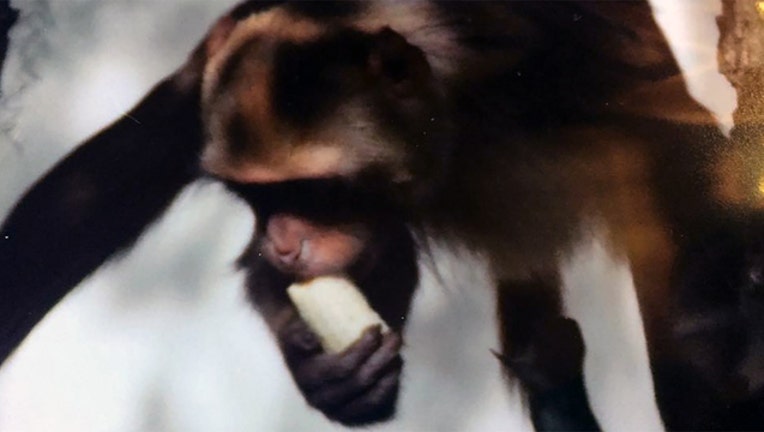No monkeying around: Court weighs if animal owns its selfies

SAN FRANCISCO (AP) - A curious monkey with a toothy grin and a knack for pressing a camera button was back in the spotlight Wednesday as a federal appeals court heard arguments on whether an animal can hold a copyright to selfie photos.
A 45-minute hearing before a three-judge panel of the 9th U.S. Circuit Court of Appeals in San Francisco attracted crowds of law students and curious citizens who often burst into laughter. The federal judges also chuckled at times at the novelty of the case, which involves a monkey in another country that is unaware of the fuss.
Andrew Dhuey, attorney for British nature photographer David Slater, said "monkey see, monkey sue" is not good law under any federal act.
Naruto is a free-living crested macaque who snapped perfectly framed selfies in 2011 that would make even the Kardashians proud.
People for the Ethical Treatment of Animals sued Slater and the San Francisco-based self-publishing company Blurb, which published a book called "Wildlife Personalities" that includes the monkey selfies, for copyright infringement. It sought a court order in 2015 allowing it to administer all proceeds from the photos taken in a wildlife reserve in Sulawesi, Indonesia to benefit the monkey.
Slater says the British copyright for the photos obtained by his company, Wildlife Personalities Ltd., should be honored.
PETA attorney David Schwarz argued that Naruto was accustomed to cameras and took the selfies when he saw himself in the reflection of the lens.
A federal judge ruled against PETA and the monkey last year, saying he lacked the right to sue because there was no indication that Congress intended to extend copyright protection to animals.
Throughout Wednesday's hearing, Schwarz pushed back, arguing that the case came down to one simple fact: photographs can be copyrighted and Naruto is the author.
"We have to look at the word 'authorship' in the broadest sense," he said.
The judges grilled him on why PETA has status to represent Naruto and said that "having genuine care for the animal" isn't enough to establish "next friend" relationship, which is required to represent the monkey in court.
The judges did not issue a ruling Wednesday.
Angela Dunning, an attorney for Blurb, wondered at the possibilities if they do not prevail.
"Where does it end? If a monkey can sue for copyright infringement, what else can a monkey do?" she said after the hearing.
PETA's general counsel Jeff Kerr said after the hearing that the group plans to use money from the photos to protect monkey habitats and help people study the monkeys.
"PETA is clearly representing Naruto's best interests," he said.
Dhuey said the legal antics were more of a publicity stunt by PETA than a lawsuit. He quipped after the hearing that Naruto made a tactical mistake by not appearing in court.
"It's like he doesn't even care," he said before walking away from cameras.
___
Associated Press writer Janie Har also contributed to this report.

